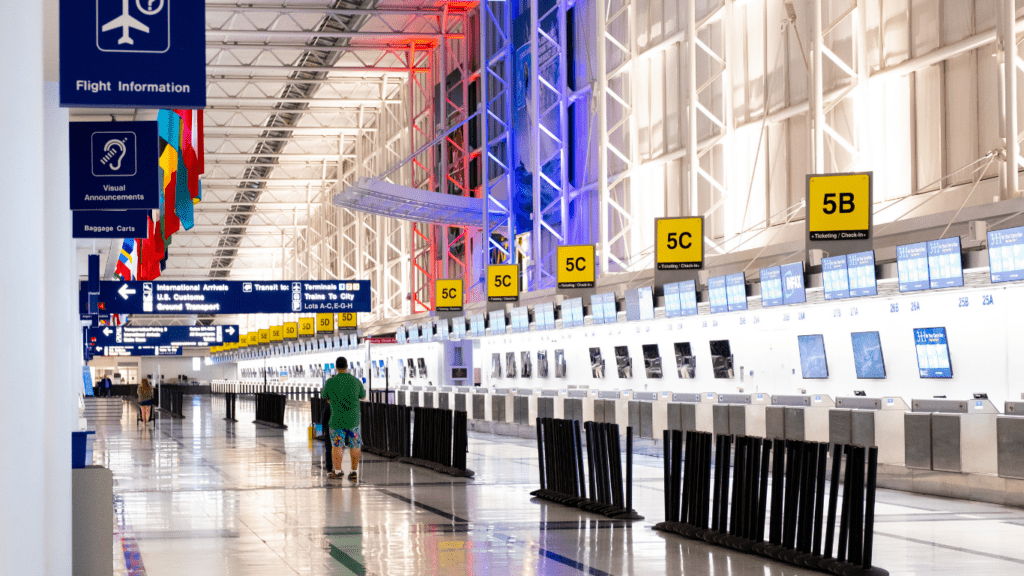In today’s fast-paced world, the traditional 9-to-5 job is becoming a thing of the past. More people are embracing the digital nomad lifestyle, seeking freedom to work from anywhere while exploring new cultures.
With this shift, countries around the globe are stepping up their game by offering digital nomad visas, making it easier for remote workers to settle in and contribute to local economies. I’ve researched some of the best countries that provide enticing incentives for remote workers.
From stunning beaches to vibrant cities, these destinations not only welcome digital nomads but also offer a supportive environment for productivity. Let’s dive into the expanding world of digital nomad visas and discover where you can take your work on the road.
Overview of Digital Nomad Visas
Digital nomad visas grant remote workers legal permission to live and work in foreign countries. These visas cater to individuals who rely on technology for their careers, allowing them to explore different cultures while maintaining professional commitments.
The rise of this lifestyle has prompted numerous nations to develop tailored visa programs. Countries offering digital nomad visas typically focus on stimulating their economies by attracting skilled individuals.
Specific incentives, such as tax breaks, simplified application processes, and extended stay durations, enhance their appeal. Many nations emphasize safety, affordable living costs, and reliable internet access, crucial for productivity.
Benefits of Digital Nomad Visas
Digital nomad visas offer a range of benefits that enhance the remote working experience. These advantages attract more professionals to consider living and working in foreign countries.
Flexibility in Work Locations
Flexibility defines the digital nomad lifestyle. With a digital nomad visa, I can choose where to work based on personal preferences. Whether it’s a bustling city, a serene beach, or a cozy mountain cabin, these visas allow me to select locations that inspire creativity and productivity.
Many countries also provide access to coworking spaces, enhancing networking opportunities and collaboration among remote workers. This freedom fosters a dynamic work environment tailored to individual needs.
Improved Work-Life Balance
Improved work-life balance emerges as another significant benefit. Digital nomad visas promote a lifestyle where I can blend work with leisure. Exploring new cultures, enjoying local cuisines, and participating in recreational activities are all possible while fulfilling professional responsibilities.
I can schedule my work around activities, allowing for greater personal satisfaction and well-being. This balance not only enhances my overall happiness but also boosts productivity levels, creating a more fulfilling work experience.
Top Countries Offering Digital Nomad Visas
Several countries have embraced the digital nomad lifestyle by offering tailored visas that cater to remote workers. Below are some of the top destinations with attractive digital nomad visa programs.
- Portugal: Portugal stands out with its D7 visa, designed for remote workers and retirees. Applicants must showcase a stable income, usually around €1,200 per month. The visa provides a residence permit for up to two years, allowing individuals to explore vibrant cities like Lisbon and Porto.
- Mexico: Mexico offers a Temporary Resident Visa for remote workers, allowing stays of up to four years. To qualify, individuals must demonstrate a monthly income of approximately $2,000. The country features diverse environments, from coastal cities like Tulum to cultural hubs like Mexico City.
- Croatia: Croatia has gained attention for its digital nomad visa, which permits stays of up to one year. Applicants must provide proof of remote employment and a minimum monthly income of around €2,500. The picturesque coastline, historic cities, and scenic landscapes make Croatia enticing for those looking to blend work with stunning views.
- Barbados: Barbados attracts remote workers with its 12-month Barbados Welcome Stamp. Candidates must prove a minimum annual income of $50,000. The island’s beautiful beaches, friendly locals, and vibrant culture create a perfect backdrop for a productive work environment.
Application Processes and Requirements
Navigating the application processes for digital nomad visas involves understanding the necessary documentation and the expected timelines for approval. Each country has distinct requirements, but I’ve outlined essential aspects below.
Documentation Needed
Documentation requirements vary by country but typically include the following:
- Proof of Remote Employment: Verification of remote work contracts or employer letters confirming work status.
- Minimum Income Evidence: Recent bank statements or pay stubs demonstrating income that meets the host country’s threshold.
- Health Insurance Coverage: Policies that cover health expenses during the stay, often with specific coverage amounts.
- Passport Validity: A valid passport that remains renewed for the duration of the intended stay.
- Criminal Background Checks: Certificates or reports verifying no significant criminal history, often required for certain countries.
- Photographs: Passport-style photos meeting the specifications set by the host country’s immigration office.
Additional documents may apply based on individual circumstances or specific country guidelines.
Timeline for Approval
Approval timelines can vary significantly among countries. On average, expect the following:
- Portugal: Approvals generally occur within 30 to 60 days for the D7 visa.
- Mexico: The Temporary Resident Visa may take 2 to 4 weeks, depending on the consulate’s workload.
- Croatia: The digital nomad visa processing time typically spans 30 days.
- Barbados: Expect a swift process, often requiring less than 2 weeks for the Welcome Stamp.
Timing can fluctuate based on factors like application volume and additional document requests. Therefore, it’s essential to apply well in advance of planned travel dates to ensure smooth processing.

























































































































































































































































































































































































































































































































































































































































































































































































































































































































































































































































































































































